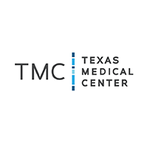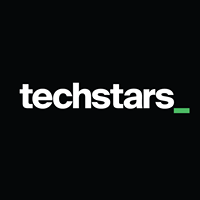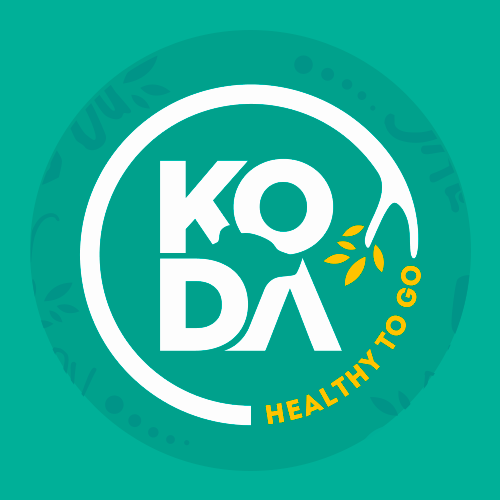Texas: A Hub of Future Innovation, from Finance to Space
October 3, 2025, 9:37 am

Location: United States, Michigan, Bingham Farms
Employees: 1-10
Founded date: 2022
Texas accelerates its role as a national leader. Groundbreaking advancements span finance, healthcare, space, and environmental technology. The U.S. Securities and Exchange Commission approves the Texas Stock Exchange. This marks a pivotal moment for financial markets. Houston's Koda Health secures substantial funding, revolutionizing digital advance care planning. NASA selects new astronauts, bolstering space exploration efforts, with Texans among them. Local universities drive medical breakthroughs. Carbon capture technology receives critical upgrades. The state showcases a vibrant ecosystem for progress.
Texas is booming. Innovation pulses across the Lone Star State. New ventures are reshaping industries. Major developments position Texas at the forefront of American progress. Diverse sectors see rapid growth.
Financial markets welcome a new player. The U.S. Securities and Exchange Commission approved the Texas Stock Exchange (TXSE). This decision is historic. It marks the first national securities exchange approval in decades. TXSE will operate from Dallas. It aims to begin trading stocks and exchange-traded products by early 2026. The exchange promises to restore competition. It seeks to reduce the burden for public companies. It will challenge established giants like NYSE and NASDAQ. This move strengthens Texas's pro-business environment. Founding investors include BlackRock, Citadel Securities, and Charles Schwab. TXSE joins Texas's "Y'all Street" economic hub. This signifies a major shift in the financial landscape.
Healthcare technology sees significant investment. Houston-based Koda Health closed a $7 million Series A funding round. Evidenced led the oversubscribed round. Mudita Venture Partners, Techstars, and Texas Medical Center also participated. This capital fuels expansion. Koda Health will scale operations. They will grow engineering, clinical strategy, and customer success teams. The company focuses on digital advance care planning. It supports over 1 million patients nationwide. Koda Health integrates with Epic Systems' MyChart. It also partners with Guidehealth. This allows patients to document care preferences. Partnerships include Cigna, Privia, and Memorial Hermann. Koda Health impacts palliative care. A study showed a 79% reduction in terminal hospitalizations. It reported a 20% decrease in inpatient length of stay. Hospice use increased by 51% among decedents. Average savings per patient reached nearly $9,000. Koda Health revolutionizes end-of-life care planning.
Space exploration continues its relentless march forward. NASA selected 10 new astronaut candidates. The 2025 training class includes two Texans. Anna Menon, a Houston native, is among them. She brings extensive experience from SpaceX. Menon managed crew operations for Dragon and Starship. She flew a commercial spacewalk in 2024. Rebecca Lawler, from Little Elm, also made the cut. Lawler is a former Navy P-3 pilot. She logged over 2,800 flight hours. These candidates train at NASA’s Johnson Space Center. Their two-year program prepares them for missions. Future assignments include the International Space Station, Moon, and Mars. This bolsters America's space ambitions.
Houston's innovation ecosystem thrives. Local universities drive critical advancements. Rice University students developed a vibrotactile glove. Emmie Casey and Tomi Kuye designed it. The glove aims to alleviate Parkinson’s disease symptoms. It uses smartphone motors. This non-invasive device is cost-effective. Pre-orders are now open. Work&, a Houston-based femtech company, launched new products. Their Lactation Pod and Hybrid Pod offer dual-use spaces. They provide lactation stations. They also support wellness activities. These include meditation, mental health, and telehealth. This addresses modern workplace needs.
Environmental solutions gain traction. The University of Houston made significant strides in carbon capture. Professor Mim Rahimi led the research. His team developed two breakthroughs. One process cuts energy and costs for amine-based CO2 capture. The other uses a vanadium redox flow system. This system captures carbon and stores renewable energy. These innovations target climate change. They aim to decarbonize heavy-emitting sectors. This research supports the transition to a low-carbon economy.
Drug delivery systems are evolving. Rice University scientists unveiled a new platform. It's called self-assembling boronate ester release (SABER). This peptide hydrogel slows drug release. It has major implications for drug efficacy. Potential applications include cancer immunotherapy. The system uses reversible chemical bonds. This extends medication duration. Researchers tested SABER with tuberculosis treatment. A single injection in mice outperformed daily oral doses. Insulin packaged in SABER controlled blood sugar for six days in diabetic mice. This platform promises simpler dosing and enhanced efficacy. Brett Pogostin led the development. This "generation one" system offers vast future potential. It could prime the immune system to prevent cancer.
Texas solidifies its position. It is a dynamic hub for innovation. From financial markets to advanced healthcare. From deep space exploration to critical environmental fixes. The state fosters rapid development. Public and private sectors collaborate. This environment attracts talent and investment. Texas truly leads the way into the future.
Texas is booming. Innovation pulses across the Lone Star State. New ventures are reshaping industries. Major developments position Texas at the forefront of American progress. Diverse sectors see rapid growth.
Financial markets welcome a new player. The U.S. Securities and Exchange Commission approved the Texas Stock Exchange (TXSE). This decision is historic. It marks the first national securities exchange approval in decades. TXSE will operate from Dallas. It aims to begin trading stocks and exchange-traded products by early 2026. The exchange promises to restore competition. It seeks to reduce the burden for public companies. It will challenge established giants like NYSE and NASDAQ. This move strengthens Texas's pro-business environment. Founding investors include BlackRock, Citadel Securities, and Charles Schwab. TXSE joins Texas's "Y'all Street" economic hub. This signifies a major shift in the financial landscape.
Healthcare technology sees significant investment. Houston-based Koda Health closed a $7 million Series A funding round. Evidenced led the oversubscribed round. Mudita Venture Partners, Techstars, and Texas Medical Center also participated. This capital fuels expansion. Koda Health will scale operations. They will grow engineering, clinical strategy, and customer success teams. The company focuses on digital advance care planning. It supports over 1 million patients nationwide. Koda Health integrates with Epic Systems' MyChart. It also partners with Guidehealth. This allows patients to document care preferences. Partnerships include Cigna, Privia, and Memorial Hermann. Koda Health impacts palliative care. A study showed a 79% reduction in terminal hospitalizations. It reported a 20% decrease in inpatient length of stay. Hospice use increased by 51% among decedents. Average savings per patient reached nearly $9,000. Koda Health revolutionizes end-of-life care planning.
Space exploration continues its relentless march forward. NASA selected 10 new astronaut candidates. The 2025 training class includes two Texans. Anna Menon, a Houston native, is among them. She brings extensive experience from SpaceX. Menon managed crew operations for Dragon and Starship. She flew a commercial spacewalk in 2024. Rebecca Lawler, from Little Elm, also made the cut. Lawler is a former Navy P-3 pilot. She logged over 2,800 flight hours. These candidates train at NASA’s Johnson Space Center. Their two-year program prepares them for missions. Future assignments include the International Space Station, Moon, and Mars. This bolsters America's space ambitions.
Houston's innovation ecosystem thrives. Local universities drive critical advancements. Rice University students developed a vibrotactile glove. Emmie Casey and Tomi Kuye designed it. The glove aims to alleviate Parkinson’s disease symptoms. It uses smartphone motors. This non-invasive device is cost-effective. Pre-orders are now open. Work&, a Houston-based femtech company, launched new products. Their Lactation Pod and Hybrid Pod offer dual-use spaces. They provide lactation stations. They also support wellness activities. These include meditation, mental health, and telehealth. This addresses modern workplace needs.
Environmental solutions gain traction. The University of Houston made significant strides in carbon capture. Professor Mim Rahimi led the research. His team developed two breakthroughs. One process cuts energy and costs for amine-based CO2 capture. The other uses a vanadium redox flow system. This system captures carbon and stores renewable energy. These innovations target climate change. They aim to decarbonize heavy-emitting sectors. This research supports the transition to a low-carbon economy.
Drug delivery systems are evolving. Rice University scientists unveiled a new platform. It's called self-assembling boronate ester release (SABER). This peptide hydrogel slows drug release. It has major implications for drug efficacy. Potential applications include cancer immunotherapy. The system uses reversible chemical bonds. This extends medication duration. Researchers tested SABER with tuberculosis treatment. A single injection in mice outperformed daily oral doses. Insulin packaged in SABER controlled blood sugar for six days in diabetic mice. This platform promises simpler dosing and enhanced efficacy. Brett Pogostin led the development. This "generation one" system offers vast future potential. It could prime the immune system to prevent cancer.
Texas solidifies its position. It is a dynamic hub for innovation. From financial markets to advanced healthcare. From deep space exploration to critical environmental fixes. The state fosters rapid development. Public and private sectors collaborate. This environment attracts talent and investment. Texas truly leads the way into the future.


